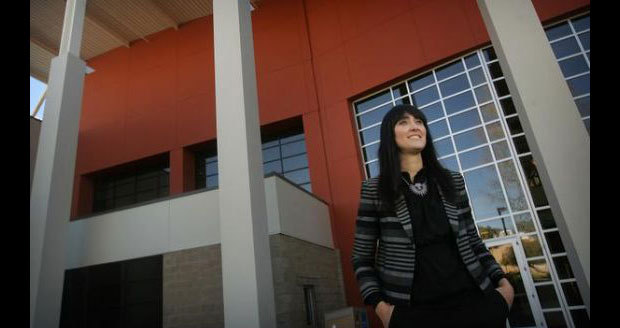CALIFORNIA: Colleges tackle sexual assault

STAN LIM, STAFF PHOTOGRAPHER
UC and Cal State boost efforts to deal with an issue many say is overlooked. At Inland campuses, students are also taking a role.
BY MARK MUCKENFUSS / STAFF WRITER
Sex on college campuses is nothing new. Neither, sadly, are sexual crimes.
But new mandates from the leaders of both the California State University and the University of California systems are bringing renewed resources to combating sexual assault.
Amreet Badesha, 20, is a second-year political science student at UC Riverside. She said it is common to hear reports of sexual harassment and sexual assault.
“You do hear crazy stories once in a while, where people were too drunk and people were going to take advantage of them,” Badesha said. “If enough was being done, you wouldn’t hear about it.”
Much of the recent attention stems from a report of a gang rape at the University of Virginia and the university’s failure to respond to the attack. While the story has been since discredited, it still raised questions about whether such incidents are appropriately handled in the college environment.
But California’s colleges had already been looking into the issue and Gov. Jerry Brown recently signed a new law known as the Yes Means Yes law. It applies to college students and requires a potential partner to verbally agree to engage in sexual activity. The law takes effect Jan. 1.
In September, both UC President Janet Napolitano and Cal State Chancellor Timothy White directed systemwide initiatives to address sexual assault more effectively. Both asked their campuses to establish or give more autonomy to already established sexual assault liaisons and to increase education on the topic for staff and students.
Many of the changes mirror provisions in the Survivor Outreach and Support Campus Act, a proposed federal bill sponsored by California legislators.
Students also are taking a role. An educational program called It’s on Us is being promoted and implemented at both Cal State San Bernardino and UCR by student organizations.
At Cal State San Bernardino, Cristina Martin was recently hired as director of the Title IX and investigations unit. She spent the past 14 years working with sexual assault cases, first as a victim’s liaison with New York University’s public safety department and, most recently, as a public safety investigator at Loyola Marymount University. She said she’s glad to see the current discussion and focus on the issue.
“It’s definitely long overdue,” Martin said. “I was lucky in 14 years ago having NYU create a position for a sexual assault investigator.” At that time, she said, “It wasn’t on everyone’s radar as being important.”
Now that it seems to be, she said, it’s important to promote education on sexual assault as well as taking action when someone is attacked. Many prevention plans often focus on what young women can do. But it is just as important to talk to men about their responsibilities, she said.
That became apparent to her early on, when she convened a panel of key administrators at NYU and members of the New York Police Department to talk about handling cases of sexual assault. As the discussion proceeded, she realized there was a distinct gap in the perception of the problem.
“I looked at all the men’s eyes in the room and they were all wide-eyed,” she said. “It made me nervous that they didn’t’ know what constituted sexual assault. It’s not just students that need to be trained. It needs to be across the board. It’s good to train everybody.”
Martin said she is planning to use Agent of Change, a computer-based role-playing program, as part of the mandatory education that will be required of all students on campus.
Most important, she said, is letting sexual assault victims know there is a system of support for them.
“A lot of victims don’t come forward because they don’t know there is a process in place,” Martin said. “I do expect to see more students feeling that they can trust the system and the process.”
Frances Suderman, 32, is a graduate student in education at Cal State San Bernardino. She’s never had occasion to need a liaison, she said, but she’s glad to have one in place.
“I would feel comfortable with a liaison,” Suderman said, “because that’s their job. The police are dealing with vandalism and other things. I would like to know of a resource who I could go to that would be sort of devoted to those matters. And I would probably be more comfortable if that person was a woman.”
Suderman was less impressed with the idea of online education for sexual assault.
“I don’t think it’s going to be that effective in getting students to do it and learning from it,” she said.
[Source]: Press Enterprise


